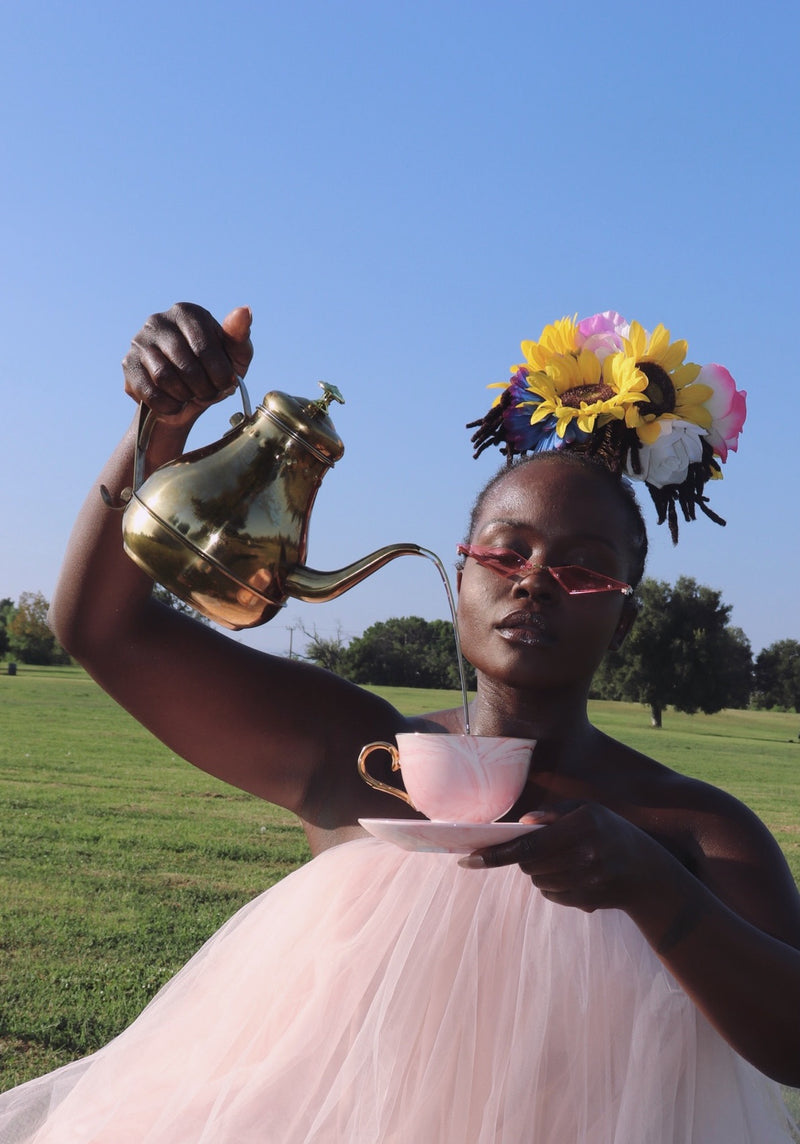
November 15th marks a special day for tea enthusiasts around the world. It's International Tea Day, a time to celebrate the rich tapestry of tea cultures that spans the globe. Tea is more than just a beverage; it's a reflection of history, tradition, and connection. On this day, let's embark on a journey to explore the global diversity of tea traditions and discover their significance in different corners of the world.
China: The Birthplace of Tea We start our journey in China, the birthplace of tea. Here, tea culture dates back thousands of years. The traditional Chinese tea ceremony is a cherished art form, emphasizing harmony, respect, and tranquility. Chinese tea ranges from delicate white teas to robust black teas, with each variety carrying its unique rituals and symbolism.
Japan: The Art of Zen Tea In Japan, tea takes on a different form as it becomes a reflection of Zen philosophy. The Japanese tea ceremony, known as Chanoyu, embodies simplicity, respect, and mindfulness. Matcha, a finely ground green tea, plays a central role in this ceremony, symbolizing purity and tranquility.
India: Chai and the Chaiwala Culture India's tea culture is deeply rooted in everyday life. The aromatic, spiced concoction known as chai is a staple across the country. It's not just about the tea but the experience of visiting a chaiwala (tea vendor) and sharing a cup with friends and strangers alike. The chai culture is an essential part of India's social fabric.
Morocco: The Art of Mint Tea In Morocco, mint tea, or "atay," is more than just a beverage; it's a symbol of hospitality and friendship. The preparation of Moroccan mint tea is a ritual that involves pouring the tea from a height to create a frothy top. It's often accompanied by sweet treats and represents the welcoming spirit of Moroccan culture.
England: The Elegance of Afternoon Tea The English have elevated tea-drinking to an art form with their afternoon tea tradition. Delicate teacups, dainty sandwiches, scones with clotted cream and jam, and a pot of black tea make up the quintessential afternoon tea experience. It's a time-honored ritual that continues to be a symbol of refinement and indulgence.
Turkey: Chai as a Social Bond In Turkey, tea, or "çay," holds a special place in social gatherings. A small glass of strong black tea is offered as a sign of hospitality and friendship. The tea is prepared in a special double teapot called a "çaydanlık," with the lower pot holding boiling water and the upper pot steeping the tea.
Morocco: The Art of Mint Tea In Morocco, mint tea, or "atay," is more than just a beverage; it's a symbol of hospitality and friendship. The preparation of Moroccan mint tea is a ritual that involves pouring the tea from a height to create a frothy top. It's often accompanied by sweet treats and represents the welcoming spirit of Moroccan culture.
Russia: The Love for Samovar Tea Russian tea culture is centered around the samovar, a large, ornate tea urn. Traditionally, Russian tea is strong and black, and it's served with a variety of accompaniments, including lemon, jam, and pastries. The samovar is a symbol of gathering and connection.
Taiwan: The World of Oolongs Taiwan is renowned for its oolong teas, and its tea culture emphasizes the appreciation of nature and the art of tea preparation. Taiwanese teas are often fragrant, complex, and meticulously crafted. Tea houses in Taiwan are places of relaxation and exploration.
Egypt: The Art of Preparing Spiced Tea In Egypt, spiced tea, often referred to as "chai a la meramiya," is a beloved beverage. The tea is typically black and heavily spiced with a combination of warming spices such as cinnamon and cloves. It's a comforting drink enjoyed in both everyday life and special occasions.
International Tea Day reminds us that tea transcends borders and connects people from all walks of life. It's a beverage that brings solace, warmth, and connection. So, on November 15th, raise your cup to the world's tea traditions, and take a moment to savor the global tapestry of flavors, rituals, and stories that make tea more than just a drink—it's a shared experience of culture and community.
